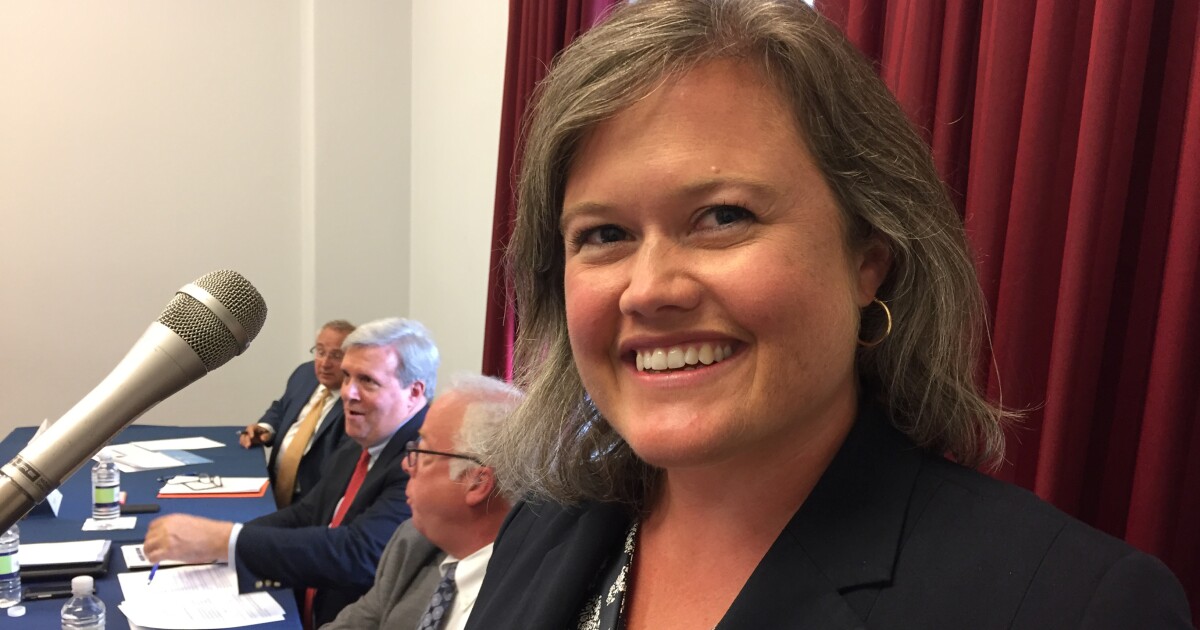GOP debt limit bill marks opening salvo in effort to cut pandemic funds
4 min read
The high-stakes Republican debt ceiling bill that passed the House late Wednesday may mark only the first of several efforts to claw back unspent local government and state pandemic funds.
Issuers “need to be on high alert that all the must-pass bills will have an iteration of the [pandemic funds] claw back, and it will get more sophisticated over time,” said Emily Brock, federal liaison for the Government Finance Officers Association.
House Republicans Wednesday narrowly approved the Limit, Save and Grow Act that would raise the debt ceiling through March 2024 or by $1.5 trillion, and cut $4.8 trillion in spending.
The bill would rescind billions in “unobligated” pandemic funds as well as cancel billions that the 2022 Inflation Reduction Act provided to states and local governments for infrastructure and environmental projects.
Congress passed six pandemic relief bills in 2020 and 2021 that provided $4.6 billion in relief and recovery funding.
As of Jan. 31, 2023, the federal government had obligated a total of $4.5 trillion and spent $4.2 trillion, according to the Government Accountability Office. Of the $350 billion Coronavirus State and Local Fiscal Recovery Funds program, the main pandemic program for state and local governments, roughly $349.9 billion has been obligated and $349.7 billion spent, according to the GAO.
As of the end of January, $90.5 billion, or 2%, of the total pandemic fund remained available for obligation, the GAO said. Another $23.7 billion was expired. Unobligated funds include $3.7 billion of transit infrastructure grants, $5.5 billion of emergency rental assistance, and $20.6 billion from the Public Health and Social Services Emergency Fund.
Republicans have not detailed which pandemic funds would be rescinded. The Congressional Budget Office has estimated that the rescissions would permanently cancel $56 billion in budget authority and $30 billion in outlays over the 2023-2033 period.
“Most of the reductions would come from the Public Health and Social Service Emergency Fund and from certain infrastructure, rental assistance, community development, and disaster relief programs,” the CBO said. The CBO’s estimate does not include reductions for $316 billion in unexpended pandemic funding that’s already subject to “legally binding financial obligations and therefore set to be spent under current law,” the letter said.
The legislation would repeal most of the energy tax credit provisions in the Inflation Reduction Act, $3 billion in transportation grant money for projects that reconnect neighborhoods divided by highways and funds available to states for reducing their greenhouse gas emissions.
House Speaker Kevin McCarthy, R-Calif., considers it an opening bid in negotiations as the country nears a breach of its debt limit as soon as early summer.
The Senate is unlikely to take up the bill, with Sen. Majority Leader Chuck Schumer, D-N.Y., calling it “dead on arrival” and saying the Senate would stick its position of passing a debt-limit bill without conditions attached.
Despite its unlikely survival in the Senate, unspent pandemic funds remain top of mind for many Republican lawmakers, Brock said.
Last week, Sen. Rick Scott, R-Fla., presented a measure that would rescind COVID funds to help cover help the U.S. Fire Administration’s budget. The amendment failed, but illustrates that lawmakers in both houses remain focused on the issue, Brock said.
There are four more “must-pass” bills that will come before Congress in the next few months that could house pandemic claw backs, Brock said: the Federal Aviation Administration reauthorization and the farm, debt-ceiling and spending bills.
“We can’t blink over the next 60 days because I think there’s going to be a first draft of all of these four must-pass bills” that could attempt to claw back funds, Brock said.
The GFOA is urging issuers to contact federal lawmakers to tout projects that have been funded with American Rescue Plan Act dollars. Issuers should also “define the word ‘unobligated,’ which is a legal liability of the U.S. government,” the GFOA said in an April 20 member alert.
“Stimulus funds are probably the lowest hanging theoretical fruit out there, but it all hinges on a sophisticated definition of the word ‘obligation’,” Brock said.
The GAO’s own definition of the word would prevent widespread claw backs, she said.
The National League of Cities dubbed the Republican bill the “Default on America Act.”
“While NLC appreciates that direct Local Fiscal Recovery Fund grants to local governments do not appear to be among the unobligated funds targeted for recission, other programs important to local governments and residents in need would become prematurely unavailable,” the NLC said in an email.
The Department of Transportation would see $6 billion rescinded, “with cuts to stabilization programs used by local governments and states to keep airports open, buses operating, and trains running,” and the Department of Housing and Urban Development would see $3 billion rescinded, the NLC said.







